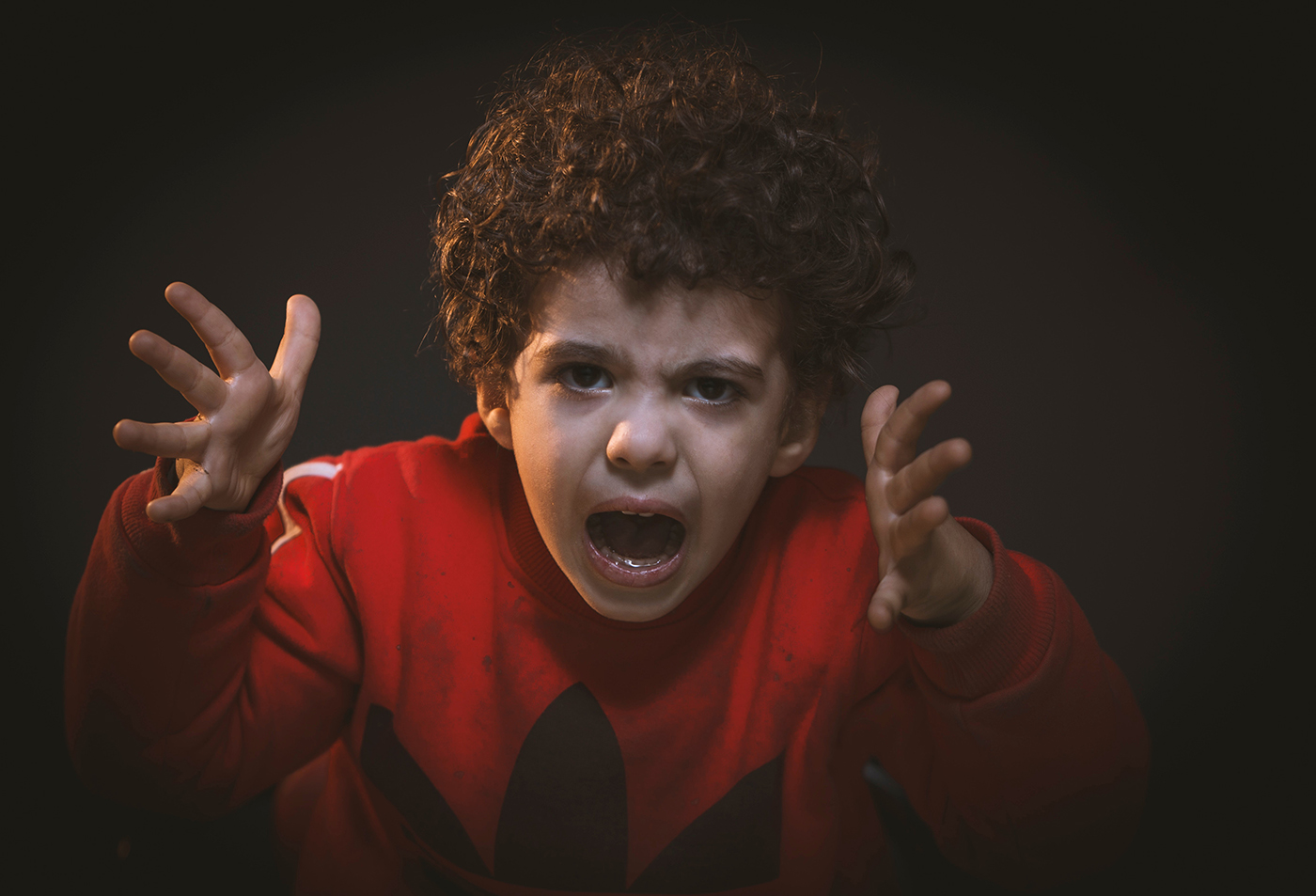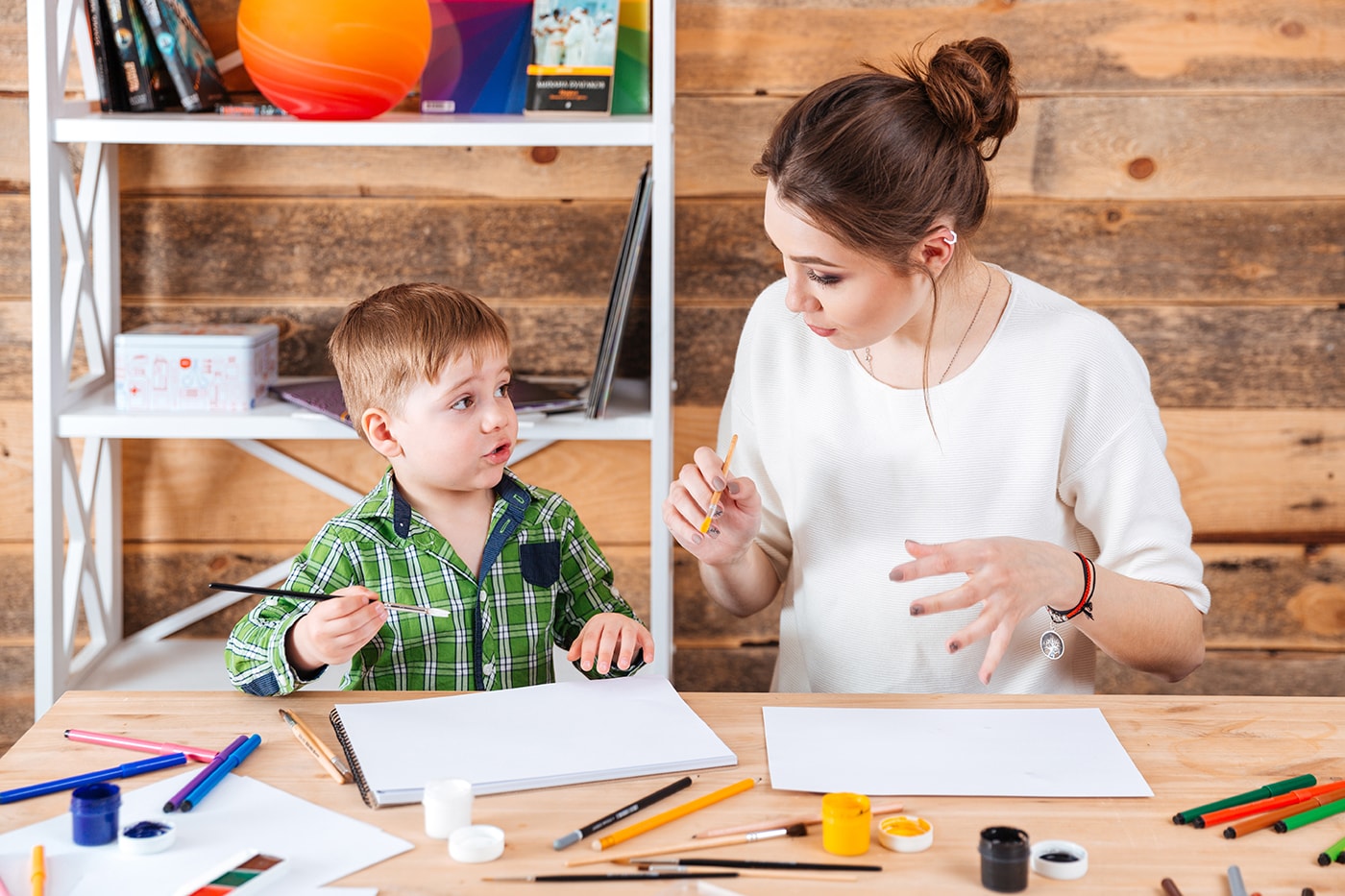The Top 3 Things to Heal Your Child’s Anxiety
 Anxiety is a horrible thing. It just eats away at us on the inside, making life so much harder to deal with. It’s difficult enough for adults to cope with the feeling of anxiety, but imagine if you’re a child and don’t know what this is or what to do about it. The sad truth is that absolutely staggering numbers of children are fighting the terrible inner pain of anxiety. As a Mom and Dad, it is so painful to watch a beloved child, of any age, grapple with feelings of anxiety. We feel so helpless and unsure of how to take their anxiety away.
Anxiety is a horrible thing. It just eats away at us on the inside, making life so much harder to deal with. It’s difficult enough for adults to cope with the feeling of anxiety, but imagine if you’re a child and don’t know what this is or what to do about it. The sad truth is that absolutely staggering numbers of children are fighting the terrible inner pain of anxiety. As a Mom and Dad, it is so painful to watch a beloved child, of any age, grapple with feelings of anxiety. We feel so helpless and unsure of how to take their anxiety away.
If you are the parent of an anxious child, a healthcare practitioner may have told you, ‘Your child is suffering from anxiety.’ Or you may have come to that conclusion on your own simply by observing your child’s behavior and listening to what your child tells you. But what does this term, ‘anxiety’ actually mean? We have been conditioned to think of ‘anxiety’ as though it were a disorder. BUT here’s the thing. We don’t have a blood test for it. We don’t have a brain test for it.
So, then exactly what is anxiety? And how do we treat it?
Anxiety is a message from your child that he or she does not feel good in their own skin. They have a feeling of unease about themselves which is caused by the belief that they are ‘Not Enough’. It is a feeling of unease about who they are and whether they are able to meet the expectations coming their way from their parents, teachers, friends and life in general.
Here’s how this plays out:
- Your child has an inner belief that who I am is ‘Not enough’
- This belief influences their thoughts. Their day is filled with thought after thought
about how they are not (smart, tough, pretty, athletic …) enough. - They are filled with doubt that they can meet the demands and expectations of their parents, friends and school
- This creates an awful feeling inside that we call ‘ANXIETY.’
Treat the ROOT not the Anxiety.
Your healthcare practitioner may treat your child in one or both of these ways:
1. A prescription drug.
2. Diet and natural supplements.
My own preference is not to use prescription drugs for anxiety – neither for children, nor for adults. This is just a band-aid that masks the symptoms. I definitely approve of making adjustments to diet and adding natural supplements both of which can help to reduce and manage anxiety.
If we want to remove the anxiety, finally, once and for all, make the anxiety go away, we need to treat the real underlying root cause of the anxiety - the belief that, ‘ I am not enough’.
Beginning Steps to Change Your Child’s ‘I am Not Enough Belief... to …
1. Make the connection in your mind that your child’s feeling of anxiety is triggered by a belief – ‘I am not enough’.
2. Don’t try to fix your child. Start by fixing your communication. Listen to the things you say to your child and what you focus on. It’s so easy to fall into the trap of spending more time speaking about what’s not working. We do this because we love our kiddos and want to help them ‘get it right.’ Ask yourself: ‘Am I unintentionally focusing on, and speaking about all the negatives? (This is how children decide that they are ‘not enough)’
3. Starting today, begin counting at the end of each day how many negative versus positive messages you sent your child that day. Be sure to use the ratio of 5 positive conversations with your child (about him or her) to one negative.
This is a good and very important place to start. In future blogs I will share some more important and powerful ways to create a pathway in your child’s brain that tells your child, every day and in every way ...
![]()
P.S. Although I have focused on our wondrous kids in this blog – everything I said applies also to us as the adults in our child's story.
3 Steps to Manifest Your Wildest Dreams for your Child in the New Year
New Year is a time of great gratitude and excitement for me. Gratitude for the amazing things that I was able to manifest this past year and excitement about making the New Year an even more extraordinary one. I have come to understand so clearly that things don’t happen to us - they actually happen through us. And that every single thing – good or bad - that happens to us – happens we because we manifest it. And since we are, indeed, manifesting every moment of every day, we may as well know how to intentionally use this power of manifestation, (that we already have), to bring our dreams to life.
I’d like to share how I tap into my power to manifest and I hope you find this useful. Please leave me a comment. I would love to know your thoughts about what I am sharing.
Step 1: I Keep Taking Myself Higher
I begin by knowing that there is a direct relationship between what I am thinking and believing and what I will manifest in my life. Neuroscience has proven that our thoughts have vibrational energy and the kind of thought-energy we send out attracts the same energy back. (isn’t that a ‘Wow!?’) Read this sentence again if you didn’t get the Wow!)
So, I make sure that I never think thoughts that I don’t want to have happen. Not ever! If I find I am having negative, fear-filled, anxious thought, I quickly become aware of it and replace it with a clear and positive opposite thought – a thought about what I would love to manifest.
I do this as many times in the day, week or month that I may need to do it. Some days I am in my higher self and my thoughts are manifesting amazing things. Other days I am in my lower self. These are the times I intentionally work on taking myself higher.
Step 2: I See the Dream
I carve out some serious time to reflect on - and answer - two majorly important manifestation questions:
- “What does my highest self want to manifest in 2019?
- “ What must I do differently from the 1st of January to ensure that I invite this into my life?”
I go crazy with this question. I break all the shackles I may have that are holding me back - and I think BIG. I have learned that if I dream about the new year from my lower self, I will only manifest more of the same old, same old. Instead I now know how to recognize my traditional and generationally driven program – and I just push past that I keep going higher, going bigger, going wilder identifying what I want to manifest for myself in the new year.
Step 3: I Live the Dream
Then finally, I live my life from the mindset that this vision or dream I have identified, is already happening. I feel the feelings of success, I think the thoughts that take me higher each day. And should I slip and let my lower self creep in, I go back to Step 1 and start to change my vibrations so that I can manifest my wildest dreams.
Here are the 3 steps that will help you manifest your wildest dreams in the New Year:
1. Take your thoughts Higher.
2. See the Dream.
3. Be the Dream. Live the Dream.
I wish you a wonder-filled year as you manifest your dreams.
Is Your Child Really Smart in Some Ways and Really Challenged in Other Ways?
I am truly blessed because I get to do what I love every day, working with some of the smartest and most interesting kids on the planet – kids and teens that have amazing talents, are intellectually deep, spiritually evolved and highly creative.
I believe that these kids have the potential to help the world solve many of its problems. And yet, when they come to see me, it is because they
have been diagnosed as having some kind of learning, behavior or mood challenge. They struggle to learn, are unmotivated to do their schoolwork and are performing below their true potential.
What’s going on?
If you forget the child’s diagnoses and look at the child through a whole and different lens, you will see that these children are being misunderstood. Yes, it is true the child’s brain does function differently. Yes, their brains think and learn and feel differently. Yes, their symptoms seem to fit the diagnosis they have been given.
AND …
Here’s the part that is many times ignored or not recognized…
Their learning, behavior and mood challenges are often combined with remarkable, superior and unique gifts.
Here’s What Happens:
Parents and teachers too often become absorbed by the child’s problems. Encouraged by teachers and doctors, the seek a diagnosis. Then they focus on the (stupid!) diagnostic label/s their child may have been given … describing some kind of ‘disorder,’ instead of giving equal attention to the child’s accompanying gifts. Doctors treat the diagnosis instead of treating the whole child. Teachers teach the child with the diagnosis – instead of teaching the whole child. Parents interact with the diagnosis – instead of parenting and interacting with the the whole child.
The result of this, ‘my child has a disorder’ type of focus, is that too often their gifts are not seen as the brilliance of who the child is – as talents they can use one day to contribute to the planet. Sadly, there is a tendency to minimize the importance of these gifts – perhaps even to see them as ‘quirky.’ This is doing a great injustice to the children because it keeps them stuck, and severely reduces the child’s chances of stepping into their unique and real greatness.
What My Research Reveals:
I am seeing a pattern in kids and teens of all ages who have symptoms associated, in particular, with diagnoses like;
- Dyslexia
- Autism, Aspergers
- ADHD, ADD
- Behavioral challenges – including all aspects of defiance and depression
I am witnessing, in so many instances, that, in addition to their very real specific challenges, some also function at measurably higher levels in other ways. It often happens that a child is in the superior range for some abilities and in the impaired range for others. Some examples of the superior abilities I am seeing in these children are in the areas of:
- High level thinking – asks unusually deep questions
- Math, science, language arts
- Art, music, dance, theater, photography, videography
- Problem solving ability
- Abstract, highly creative thinking, original, unique ideas
- Insightful
- Intuitive
- Athletic
- Verbal ability
- Highly observant – in tune with energies around them – Mpaths
Do your children have these skills?
If you are a parent whose child has any of the above skills and yet are grappling with other challenges – here are three important parenting traps to avoid and ways to help your child become the greatest version of themselves:
Avoid:
Telling your children that they are not trying hard enough, that they are lazy, that they need to be more motivated. When you do this, you are telling them that they are ‘not enough.’ This message reduces their sense of self-worth, increases a feeling of shame and heightens their anxiety – all of which aggravates their struggles and negatively affects their ability to learn.
Instead:
– Make a list of your child’s particular unique giftedness.
– Notice these gifts as they reveal themselves each day and feel immense
pride.
– Strengthen your children’s awareness of their talents.
– Talk to them – often – about what makes them so unique.
– Strategize ways to build on your child’s unique gifts.
– Make sure that your children are in a ‘good fit’ school – a school that sees
the whole of your child, where the teachers have the skills to teach in
ways that these children require – such as using movement, music,
project-based lessons and experiential learning.
Avoid:
Believing and thinking, ‘I have a child with a problem.’ (Remember, your beliefs become your reality, which then becomes your child’s reality). Don’t allow yourself to fall into ‘traditional-medical-educational-societal outdated ways of thinking about the challenges your child has.
Instead
Fill your mind with thoughts like this:
My child has come to teach me to see myself, life and the world differently.
I see the wonder of who my child is. I know that he/she is differently brilliant, gifted and smart in his/her own unique way.
It is up to me to learn how to parent my child in ways that will enable him/her to step into his greatness.
My Message to You
Moms, Dads, Teacher! Consider the fact that you may have a child that is learning or behavior challenged in some ways and gifted in other ways – at the same time.
And if this is true please learn how to do two things:
1. Discover the newest and best ways to Heal These Children’s Challenges
2. While at the same time skillfully building on their natural and unique gifts
PLEASE REMEMBER:
THE WORLD NEEDS YOUR CHILD’S UNIQUE PERSPECTIVE ON LIFE, AND DIFFERENT WAYS OF THINKING.
PLEASE DON’T MINIMIZE THE VALUE OF THESE UNIQUE GIFTS.
Defiant Kids: A Misunderstood Modern-Day Epidemic
The numbers of children and their families that are tormented by negative, oppositional, defiant meltdowns is truly staggering. This behavior is so prevalent that it has now even been given a formal psychiatric diagnostic label – Oppositional Defiant Disorder (ODD). Healthcare practitioners, counsellors, parents and teachers are – unfortunately – using this term to describe difficult children. This makes me so angry and so sad because being oppositional and being defiant is NOT a disorder. It is NOT a psychiatric problem. It is NOT a sign of a child having a personality or character defect; it is NOT a child that is mean-spirited!
What Does Such Behavior Mean?
These behaviors are really important messengers. It is your child’s way of screaming for help. Think of it as the child’s way of telling you: ‘Mom, Dad, Teacher, something is going on inside of me that is driving me to behave this way. Please find it and fix it so that I can stop behaving this way.’ I don’t need you to drug me. I don’t need you to label me. I need you to discover what my behavior problems are really trying to tell you.’
Defiant Children are completely Misunderstood
Parents all tell me the same thing – ‘We don’t know how to parent our child in a way that will help him overcome these issues.’ They tell me that talking nicely to him doesn’t work, lecturing makes things worse, giving him consequences is useless because he doesn’t seem to care. So, why does this seem to be such a difficult problem to resolve? Why do so many parents and teachers find it so difficult to help these defiant, angry children?
Because defiant children are often completely misunderstood, and, therefore, incorrectly handled.
The reality is that defiant kids don’t wake up in the morning and decide: Today I am going to be difficult and defiant and say “no’ to everything and disagree with everybody… and kick and scream… If they had a choice they would most definitely not want to behave that way. In fact, many children tell their parents after an incident that they don’t know why they behaved that way and that they don’t like the way it makes them feel.
It does not make any sense whatsoever to treat these kids as though they are capable of choosing to behave differently. At the moment of the incident, they are NOT capable of making a better choice. Why? Because defiance is a stress-related condition. It is caused and made worse by stress and brain inflammation that go hand-in-hand.
Inflamed brains cannot behave positively, feel good or hear what you are saying.
Traditional Parenting aggravates instead of alleviates the problem
When you try to ‘fix’ your child using too much talking, bribery, behavior charts, consequences and punishment this simply cannot work because this doesn’t address the real underlying cause which is an overload of stress. Stress causes and worsens any kind of emotional, social, sensory, mood or learning problem. It worsens angry, defiant and oppositional behavior
It makes sense then that the No.1 parenting goal is to learn how to reduce the child’s stress by responding to the child in a stress-less way. Understandably Moms and Dads (and teachers) of defiant children reach a point where they become stressed. This triggers stress in the child.
And boom! The child responds with defiance.
This is the well-known stress-related ‘Fight’ response. It is driven by stress chemistry in the brain. In other words, your child’s defiance is chemically driven. It is caused by high stress which inflames the brain. Now your beloved son or daughter’s defiant behavior is beyond his or her control. At this moment, there is little you can do to deal with the defiance until you child becomes calm.
2 Kinds of Parenting: Parenting That Heals or Parenting That Inflames
If defiance is a chemical reaction, this begs the question: If being defiant, angry and oppositional is beyond their control, does it make sense to impose all kinds of punishments and consequences on these kids? When we do that we are treating defiant, oppositional children as though they don’t want to behave well, when in most cases they desperately do, but they simply can’t?
In my video you will learn that when Moms and Dads are stressed, you are more likely to have inflammatory conversations with your children, using words and body language and tone of voice that is punishing, discouraging, angry, negating and consequence driven. Stressed parents are also less likely to listen, really listen to what your children are telling you. Communicating with your children in this way is what I call Inflammatory Parenting.
The result is that your children’s brain will become stressed and inflamed, which triggers the angry, not listening, defiance. This will upset you even more, so you raise your tone of voice more, present even more negative body language and threaten greater consequences –and your child’s defiant symptoms get even worse.
The way parents and teachers engage with and communicate with the child can either worsen their defiant symptoms or play an important role in healing them.
Parenting a defiant child needs very special specific skills. Without understanding how to communicate with your defiant child, you may, unintentionally, make the defiance even worse.
I have a powerful online video coaching program where I coach you on exactly how to reverse your child’s need to be defiant, and raise a happy, calm, confident, emotionally resilient kiddo.
This video program is called: From Defiant to Delightful. How to Heal Your Child's Defiance... Read all about it here
I have a powerful online video coaching program where I coach you on exactly how to reverse your child's need to be defiant, and raise a happy, calm, confident, emotionally resilient kiddo. This video program is called: Goodbye Problems. Hello Confidence and Resilience. Read all about it here.
https://www.youtube.com/watch?v=GZak_dfdv3I
Heal the Roots and the Problems Dissappear
Parents today are busily looking for the best ways to free their wonderful kiddos of many different behavior, mood or learning problems – such as low confidence and self-worth; defiance, anger, meltdowns, withdrawal, sadness, anxiety and fear, difficulty with focus and attention - and the list goes on and on.
But the truth is we cannot heal these problems because they are just symptoms of something else. Instead of focusing on the problems, what we need to be healing is the root cause, and these problems will magically disappear.
Here is the most amazing thing I have discovered after my many years of research and practice - I have discovered that there is ONE root cause that is common in EVERY child that has a problem – no matter what the problem is. And when we heal this ONE original root cause - all the emotional, mental, physical and academic problems are eliminated.
I guess you are all going - okay Dr Sandy get to it – what’s this one root cause. Give me a minute. I’m getting there. I first need to have an important chat with you.
Have you ever thought about this? Children are closest to which source when they arrive in this world? They are born with a higher vibrating self that has an immense knowingness, a sense of complete wholeness and total self-acceptance and self-love.They know about their oneness with the divine. They know what they need in order to stay whole. They know what feels right for them, and what doesn’t feel right for them. They know in their cells that,‘I am me and I am so enough’.
They are incredibly in tune to every vibration around them. They know all about you. They know if you are anxious or afraid or happy and serene. They know what you are thinking and believing. They know what you feel about yourself and what you feel about them.
And then what happens to this higher vibrating soul is that we begin to mess with their wholeness, we ignore their knowingness by not seeing and hearing them, and we begin to assess and judge them according to our expectations and beliefs (which were placed on us by our parents). And we tell them repeatedly - in subtle and not so subtle ways – don’t be the authentic wonder of who you are – be what I think you should be – (which is actually what my parents thought I should be – and what their parents told them to be). And unknowingly we cause them to believe …who I am is not enough. Unknowingly we cause them to disconnect from their unlimited higher self and instead become limited.
The inner pain of believing … ‘who I am is not enough and therefore I must disconnect from who I truly am’ causes the child’s inner spirit to ache. The longing for their authentic self to be seen, affects their entire life. So, Moms and Dads, I am saying that this deeply held belief that,‘who I am is not enough’ is the birthplace of every problem a child may manifest. It is that ache that,we as parents, and as health practitioners, need to be healing if we want to heal learning, behavior and mood problems.And the only way we can do this is by reconnecting the child with his or her whole and enlightened self.
AND the only way that this can happen is if WE, as Moms and Dads, heal our own feelings of ‘not enoughness’ / not feeling enough and instead begin to feel that we are SO ENOUGH. When we realize this about ourselves, we will become healing parents, that know how to raise children who feel, I am SO Enough!
Bottom line:
We have a choice - we can either connect with our children through our limited self, one that has unfinished emotional business, which will keep our children stuck - or we can heal ourselves and connect with our kiddos from our highest self, which will enable our kiddos to become problem-free, learn easily, love life, feel good about themselves and others, and behave in positive ways.
The truth is that our children don’t have the problem. They are carrying Mom’s or Dad’s unfinished business. And when Mom and Dad heal, the children can step easily into their own greatness. And can change the world!
Does your Child Believe: ‘I Am Not Enough?’
https://www.youtube.com/watch?v=WCPNkFKpu54&t=15s
We all want our kids to go into life with positive self-esteem and a strong sense of self-worth. So, we motivate them, offer them support and encouragement and tell them how wonderful they are. Yet, one of the greatest emotional epidemics affecting millions of children today is that they struggle with low self-esteem because they have an inner belief that “I’m not enough.”
The inner pain that this belief causes is immense. It affects absolutely everything in the child’s life. Every day, I see children and teens who are hurting emotionally, academically and physically because they cannot cope with the inner feeling that they can never be enough for their parents, their teachers, their friends and sometimes, even, that they are just not enough for this world.
What strikes me is that all these children have such loving parents. And still the child is hurting inside! Still the child has so little self-worth. Why? It seems that with the best intentions, parents may be sending children the unintentional message that who they are is not quite enough. Of course, this is not the message that as parents we intend to be sending, but it is often, the message that the child is hearing. And the more we encourage and pressure them to be better, do better, behave better, be smarter, try harder, the more they feel and believe that, “Who I am is not enough.”
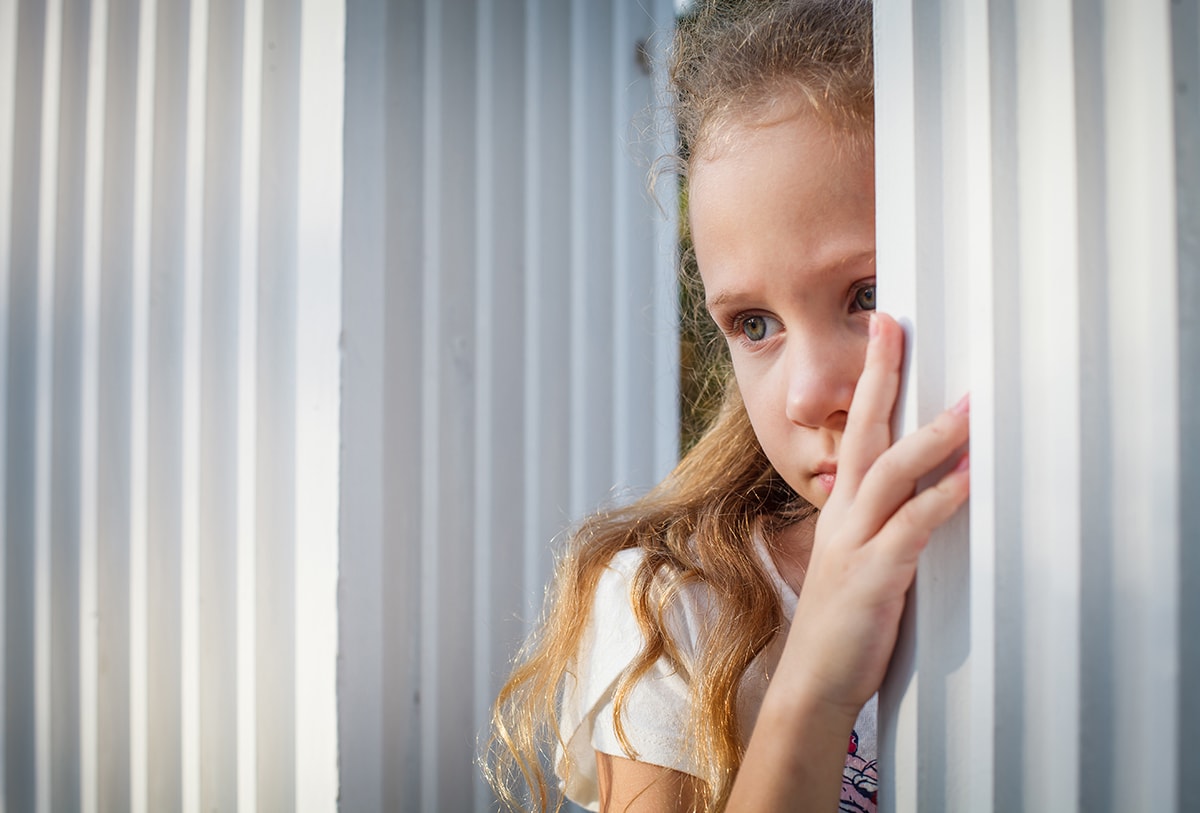
The 3 mistakes that parents unknowingly make that cause low self-esteem
Mistake #1
We want our kids to succeed so badly that we spend a disproportionate amount of time talking to them about what isn’t working and far less time speaking about all the things that ARE working, and all the wonderful things they are, and do. We might become preachy, giving long, repeated lectures about how they could improve, sending the subtle, or not so subtle, message that they are not enough.
Mistake #2
We try to fix our kids, instead of first fixing ourselves. We may not realize that we are pushing our kids beyond what is good for them, because of some unfinished emotional business inside of ourselves. Perhaps, as a child WE too felt as though we are not enough and still feel that way as a parent.
Mistake #3
We think that if we tell them often how amazing they are, our kids will eventually believe it and develop a strong self-esteem. Trying to convince them that they are worthy does not work. In fact, it often aggravates them and causes them to withdraw from us or get angry with us.

How do you know when you are pushing too hard and unintentionally causing your kids to feel “not good enough?”
You will see some or many of these signs:
- Become angry, resentful, defiant, withdrawn; have meltdowns, temper tantrums.
- Say things to put themselves down. They may even use the words, “I am not good enough.”
- Have extremely high expectations of themselves.
- Judge themselves harshly - be very hard on themselves.
- Be afraid to try new things for fear of failing.
- Become perfectionistic as a way of trying to make sure that they are good enough.
- Develop stress-related physical symptoms such as headaches, gut problems, eczema and asthma among many other possibilities.

5 steps of action that will build your child’s “I am SO enough” belief
1) If your kids have several of these signs, please take it as a message that you could be pushing them too hard. Be careful not to think that these symptoms are just a phase they will grow out of. It is not a phase. There is a reason why your child has low self-esteem, is super-critical of himself, or is perfectionistic and this needs to be dealt with.
2) Be sure not to blame yourself as a parent. Feeling guilt will only give you stress, and stressed parents create stressed children. Let yourself know that you have always parented the best way you knew how, AND THEN commit to making some necessary healing changes to your parenting style.
3) Ask yourself, “Am I perhaps pushing too hard because I want my child to perform in ways that will make ME feel good – because I don’t feel enough myself. And if this is the case, work on building your own sense of self-worth.
4) Start having what I call, ‘Healing Conversations,’ using the 5-1 rule. This means that on any given day your child hears five positive messages from you to one negative one. Identify all the wonderful characteristics your kids display and speak about this to them. Let them know that you see these characteristics and this is what makes them the special person they are.
The reason for the 5-1 rule is that when you speak about five positives to one negative the child’s brain begins to encode a new belief “I am SO Enough.” Try this and you will be amazed by the transformation in yourself, as well as your children. You will begin to see your kids through less judgmental eyes; you will enjoy the wonder of who they are; your stress will decrease, and your kids will become calmer and happier.
5) Subscribe to my YouTube Channel and Facebook page where you will learn lots of parenting tools for building your child’s self-esteem
How a Parent Can Heal a Child’s ADHD
Parents whose children grapple with the symptoms that are labeled as ADHD, are, understandably, searching for the best ways to help their children overcome this. This journey can be exhausting, overwhelming and costly in terms of time, money and emotion. Parents often tell me that the different kinds of treatments they have tried, have brought some improvements, but not to the degree where the symptoms are truly reversed - which is what they dream about for their child. Traditional therapies available for ADHD, too often are missing one very simple but critical element which is that …
Kids of all ages, with ‘ADHD,’ absorb stress much more than other kids.
They are magnets for stress. Their stress dysregulates their nervous system.
Children cannot learn, pay attention, focus, respond calmly, behave appropriately, be healthy and feel happy when they are feeling stressed and have a dysregulated nervous system.
https://vimeo.com/655162739/ee3ab65a2d
The higher their inner stress levels, the worse their ADHD symptoms become. And the worse the symptoms become, the higher their stress levels go. And as the stress increases the brain becomes more and more unable to do what it would normally do, which is to help the child learn easily, focus, pay attention, behave positively, feel good and be calm.
Any form of treatment that does not take these facts into account, will be highly unlikely to be effective and have sustainable positive results, because by ignoring the stress factor they are 'putting the cart in front of the horse - and the result is that kids remain stuck with the problems.
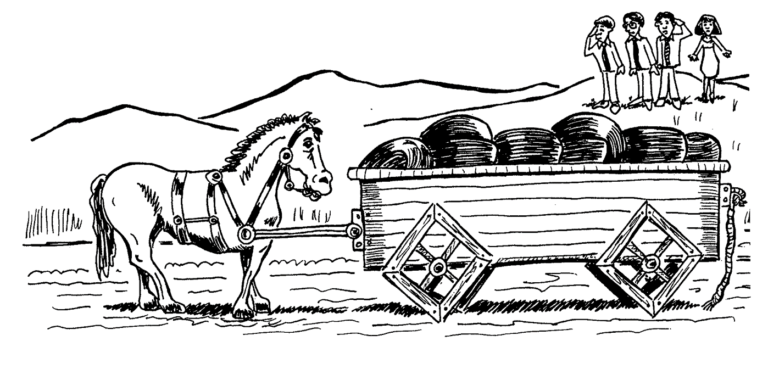
I believe that traditional medicine has conditioned parents (and teachers) to think that ADHD is a ‘disorder.’ My studies and research and experience shows that ADHD is NOT a disorder, but rather it is a collection of symptoms created by high inner stress.
And when the inner stress is reduced and removed, the so-called ADHD ‘disorder’ goes away.
It may or may not surprise you when I say that if a child has ADHD, the place to start healing this is through making important changes in the parent-child relationship.
Being a parent whose child has the symptoms of ADHD can be stressful. It is tough to watch your child struggle in the ways that they do. What many parents don’t know (because the traditional practitioners don’t always tell them) is that your stress is highly contagious.
If a parent, or both parents, feel stressed, the child will be stressed too. Neuroscience has shown us that what is happening inside the parent, will be happening inside the child.
The truth is that every moment you are with your children, you are changing their chemistry and their nervous system to match yours.
If you are anxious and worried, they will be too.
If you are joyful and excited, they will be too.
So, this being true, the place to start HEALING and reversing your child’s ADHD is by healing and reversing YOUR stress.
And as you become calmer, your nervous system becomes more regulated and your children will do the same – they will feel calmer and their nervous system will become regulated.
THIS IS WHEN YOUR CHILD BEGINS TO HEAL THEIR ADHD.

This scientifically proven fact means that YOU are orchestrating the chemistry in your child’s brain. It becomes vitally important then that you know how to stimulate your child’s healthy chemistry and NOT the unhealthy stress chemistry. To do this you need to know how to parent your child – how to be with your child – how to connect with your child - in ways that will reduce stress and help your child’s brain.
Sound complicated? It’s not. It’s really so simple!
Start with this
Check how YOU score on these statements below.
- I now understand that my stress is changing my child’s brain chemistry.
- I can totally understand that how I speak, look, sound and behave with my child, when I am stressed, affects my child’s brain chemistry, in unhealthy ways
- I am willing to acknowledge that my current stress level is too high.
- I have the personal courage to confront why I stress the way I do. (A clue: Did you see your own Mom and Dad doing this with?).
- I really, really, want to reduce my stress level both for my own sake as well as to heal my child.
Be aware that if you want to work on healing your child’s ADHD you will need to score YES! on all of above.
THE NEXT STEP
You carve out time to learn exactly HOW to do this and how to develop a stress-less relationship with yourself and your children.
PLEASE KNOW
For REAL healing to happen in your child’s brain, any changes you make to your stress level, must be the kind of changes that are clearly visible to your children. It must be the kind of changes that your child’s brain will interpret as …

Something feels different about Mom/Dad
It feels good!
Mom and Dad are so calm these days
Dad is so present
They really listen to me
Mom often laughs
She seems so much happier
Dad isn’t fighting with me anymore
We discuss things calmly
They are SO relaxed and cool
Mom and Dad are such fun to be with
Mom and Dad are much happier with each other
Mom and Dad seem to be so proud of me!
When your child feels these changes in YOU – THEY will start to feel safe, their brain chemistry will go back into healthy balance, their nervous system will become calm. And only then will their brains be able to start healing their ADHD.
HEALING YOUR CHILD’S ADHD STARTS WITH YOU!
Would you like to learn more about this? Here are some powerful links for you to explore
The 10-Session Parenting That Heals Program

4 Parenting Mistakes that Create Anxious Kids
We all want our kids to become their very best selves. We support, encourage and prod them so that they can be everything they are capable of being. You would think then that our kids would not be filled with anxiety, that they would instead, be emotionally resilient, confident and bold. You would think they would have a strong sense of self-worth
Yet, one of the greatest emotional epidemics of modern times affecting our kids is that they struggle with an inner belief of “I’m not enough.”
The inner pain that such a belief about oneself causes, is immense. It fills the child with anxiety and affects absolutely everything in the child’s life. The belief that: ‘I am not enough’ affects them emotionally and academically, and even impacts their health. Every day, I see children and teens who are anxious because they cannot cope with the inner feeling that they can never be enough for their parents and their teachers; sometimes, even, that they are just not enough for this world.
Why does this happen?
What strikes me is that all these kids have such loving parents. And still the child is hurting inside! Still the child has so little self-worth. Still the child is so anxious. Why? It seems that although our intentions are positive, we are constantly sending our kids the message that they need to be better. The more we encourage and pressure them to be better, do better, behave better, the more they come to the conclusion that what they are hearing is … “You’re not enough the way you are.”
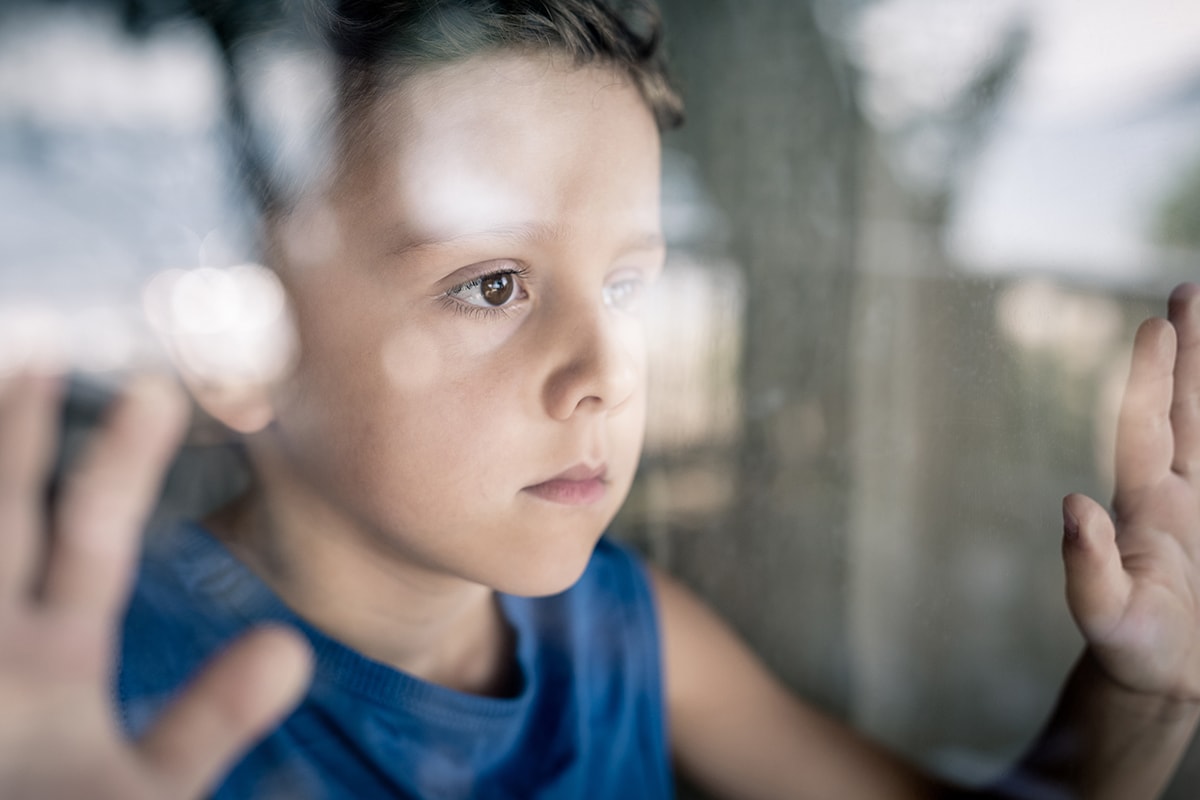
Low self-esteem and anxiety go hand-in-hand.
This feeling of ‘not enoughness’ causes kids to feel extremely anxious about whether they will be able to meet the expectations of their parents, teachers and peers. This anxiety changes their chemistry making it difficult for them to focus, pay attention, behave well or feel good about life – with the result that they actually can’t meet the expectations of others.
The belief of I’m not enough’ then grows stronger
And the anxiety increases
The 4 mistakes that parents unknowingly make
Mistake #1:Trying Too Hard to ‘Fix’ the child
Understandably, all parents so badly want their kids to cope to be okay, to be happy and successful. Moms and Dads, when you try too hard to ‘fix’ the child, you are so driven by your desire to help them that you may tend to have stressful conversations with your children. These conversations focus much more on what isn’t working and much less on the things that ARE working - on the wondrous kids they are and all the wonderful things they do. This has unintended consequence that create the very thing you don’t want:
The child hears ‘You are not enough.'
The child’s anxiety increases.
Mistake #2: Trying to fix our kids, without first fixing ourselves.
We may not realize that the reason why we are so passionate about our kids succeeding is because we ourselves don’t feel as though we are enough. In my work and research, I have discovered that every child I see who doesn’t feel good about himself, has one or both parents who are stressed and who themselves feel like they are not enough. Kids know how their parents feel! If we want our kids to be confident and anxiety-free; if we want them to be happy and stress-free, we must be a great role-model this.
You cannot give your kids what you yourself don’t have
You need to be the living example of everything you want your child to be.
Mistake #3: Seeing Your Kids as being limited
When your child is experiencing attention, behavior or mood problems, it is too easy to fall into the trap of starting to see the child as being limited. It is important to realize that beliefs have power. What we believe is what we see and then becomes what we get.
See your children as unlimited and remarkable things will happen.
Mistake #4: Looking for the solution in the wrong place
The first instinct of a parent whose child is grappling with a problem, is to ask the question, ‘Who should I go and see about this? What doctor do I go to? And so begin the trips to different doctors and therapists. All the while the most powerful solution lies in right at home in the dynamics of the parent-child relationship. Taking a child to a therapist, fetching him an hour later, bringing her home and then (completely unintentionally) parenting your child in ways that actually trigger the problems, doesn’t make a whole lot of sense.
When parents adjust their relationship with their child, to meet the child’s unique temperament and needs, miraculous healing takes place.
If you want to know more about this sign up on my website for a Free Consultation and read my book, Parents Take Charge: Healing Learning, Behavior and Mood Problems Without Medication
You can also hear what I have to say in this short video!
4 steps of action to reduce your child’s anxiety
1) If you have a child that is anxious, please take it as a message that you could be parenting them in a way, (with all the love in the world), that is not right for them. Be careful not to think that being anxious is just ‘my child’s nature.’ There is a reason why your child has the neurochemistry of anxiety flowing through his or her brain.
2) Be sure not to blame yourself as a parent. Feeling guilt will only give you stress, and stressed parents create stressed children. Let yourself know that you have always parented the best way you knew how, AND THEN commit to making some necessary healing changes to your parenting style.
3) Start having ‘Healing Conversations’ with your children. Identify all the wonderful characteristics your kids display and speak about this to them. Let them know that you see these characteristics and this is what make them the wondrous child they are. Be sure to use the 5-1 Rule. This means that on any given day your child hears five positive messages from you to one negative one. The reason for the 5-1 rule is that when you speak about five positives to one negative the child’s brain begins to encode a new belief - “I am SO Enough.” Try this and you will be amazed by the transformation in yourself, as well as your children. You will begin to see your kids through less judgmental eyes; you will enjoy the wonder of who they are; your stress will decrease, and your kids will become calmer and happier.
4) Identify your child’s unique preferences and talents. Discover what they love to do. Identify what comes more easily to them. And then learn what you need to do to build on this talent. This will reduce your child’s stress and anxiety and increase the feeling of, “I’m SO enough!’
Every single child I have ever worked with has a unique talent that they came into the world with.
ADHD is Not a Useful Label
ADHD exists only in the mind of some parents, teachers and healthcare practitioners.
Yes, I understand your child has all the attention and behavior symptoms associated with ADHD. Yes, he cannot sit still for a minute. No, she cannot focus and pay attention. Yes, he can’t control his impulses. Yes, she fits all the criteria for this condition they call ADHD. Yes, they have been diagnosed as having ADHD. So, now you have a diagnosis. How does that help you reverse your child’s symptoms? Sure, the diagnosis can help you ask for accommodations in school, but that’s about it. And your child will still be stuck with the symptoms.
Since your goal is to help your child overcome the symptoms of what is being called ADHD, it would make much more sense to ask and answer the question: ‘Why has my child developed these symptoms ? What is the root cause of all these symptoms?’ What happens too often is that we focus on treating the symptoms attached to the diagnostic label – ADHD – without addressing and fixing the underlying cause. When a practitioner gives a bunch of symptoms, a catch-all name, like ADHD, this tells us nothing about what is causing the symptoms. And when we don’t know what the causes are, we can't fix the causes, and we can’t reverse the ADHD. The result of this is that the child will be stuck with varying degrees of the problem forever. And parents will always be searching for ways to help the child ‘manage’ the problems.
Managing ADHD means it is here to stay.
Healing ADHD means the problems go away.
What causes ADHD? And how do you fix it?
If your child displays some, or all of the symptoms associated with the diagnosis of ADHD what could be causing this? The answer is that this is a stress-related condition. The underlying root cause is that your child is feeling high inner stress. There is a good chance that nobody has told you that stress is the culprit. Or perhaps intuitively you know that stress plays a role. But many parents, teachers and healthcare providers skim over this fact. Instead they focus on reducing the symptoms – using an outside-in treatment approach instead of an inside-out treatment approach.
Outside-in treatment involves the use of medication, behavioral therapy cognitive behavioral interventions, psycho-social and educational interventions. Here’s a fact to take note of! While the child’s spirit, body and brain are overrun by stress, these therapies will not be effective. In addition, medication has side effects and can dumb down the child’s spirit. The most negative impact of outside-in treatment is that the child begins to feel something like … I am broken, there is something bad that is wrong with me, I am not enough as I am.
Inside-out treatment, on the other hand, is extremely effective because it involves understanding the ‘why’ and then addressing and removing these causal factors.

Important questions to ask:
Why are so many children feeling such high stress?
Why is my child feeling so stressed?
Here’s what happens. It’s a vicious cycle that goes like this:
Children with the symptoms of ‘ADHD’ have a sensitive spirit.
Being sensitive makes them begin to doubt their self-worth.
They begin to believe “I am not enough.”
This creates a great deal of inner stress and anxiety.
Stress hormones are released and flood your child’s brain. This changes the brain chemistry making it difficult for children to pay attention, be calm, behave positively and feel good.
High stress is always accompanied by high inflammation which also affects the brain and can also affect your child’s body, causing all kinds of physical complaints.
THIS, is how all learning, behavior and mood problems begin.
The dangers of calling your child’s symptoms ADHD
Labels are stigmatizing.
He is taken from one doctor to another, from one kind of therapist to another.
Your child starts to believe there is something wrong with him.
This affects his self-esteem.
It creates huge stress in his spirit, body and brain.
The stress triggers and aggravates his symptoms.
Parents, teachers, siblings, friends begin to identify him as ‘ADHD’ losing sight of the wondrous child behind the label.
Parents and family members become stressed.
Your child feels your stress.
This sets up the vicious cycle described above.
And now your child is stuck with his or her symptoms!
Here’s what I would highly recommend:
If your child has already been diagnosed with ADHD then make a pact with yourself, your spouse and the siblings not to use this term around the child. Respectfully insist that the teachers don’t use this term with him or around him or with you.
If your child has not been diagnosed, avoid this. It is not helpful. You may think that having a diagnosis helps you know what is happening with your child, but it does not because it may let you fall into the trap of believing he has a ‘disorder.’ This may mean that you miss the opportunity to find and fix the underlying causes.

3 STEPS OF ACTION YOU CAN TAKE NOW
The way to heal your child is to:
- Become aware of the fact that this is a stress-related condition.
- Find a practitioner who understands how to heal ADHD by reducing the underlying physical, mental and emotional stress. These practitioners have a different kind of specialized training. (If you need assistance to identify the right kind of practitioner and how to find one in your area, email me and I will be happy to assist with this. (My email is drsandygluckman@gmail.com. Please use the subject line: Finding the Right Practitioner).
- Read my blog: How Parents can Reverse their children’s ADHD. Here you will learn about the 3 parenting skills that will heal your child’s inner stress.
I would love to hear from you. What you think about this approach? Please take a moment to leave a comment. It would mean a lot to me and my readers.





